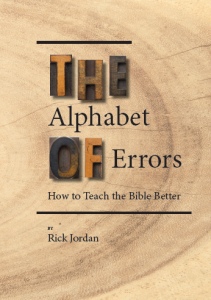Scot McKnight (PhD, University of Nottingham) is a world-renowned speaker, writer, professor, and equipper of the Church. He is a recognized authority on the historical Jesus, early Christianity, and the New Testament.
.
Nancy C. Lee, Ph.D. teaches at Elmhurst University where she is Professor of Hebrew Bible/Religious Studies and Distinguished Niebuhr Chair.
.
.
Brent Strawn’s research focuses on ancient Near Eastern iconography, Israelite religion, biblical law, the Psalms, poetry, and Old Testament theology. He joined the Duke Divinity School faculty in 2019 and has a secondary appointment at the Duke University School of Law.
.
Elizabeth Hagan is an ecumenical pastor at heart who has most recently served the Palisades Community Church in Washington, DC, as senior minister. Though first ordained as an American Baptist, Hagan has served United Methodist, United Church of Christ, Presbyterian (USA), and Disciples of Christ congregations in various pastoral roles.
.
A native of Ireland, Professor John J. Collins was a professor of Hebrew Bible at the University of Chicago from 1991 until his arrival at Yale Divinity School in 2000. He has published widely on the subjects of apocalypticism, wisdom, Hellenistic Judaism, and the Dead Sea Scrolls. He is the General Editor of the Anchor Bible Commentary Series.
.
This interview is based on Dr. McDonald’s latest book, Ancient Jewish and Christian Scriptures: New Developments in Canon Controversy, co-authored with John J. Collins and Craig A. Evans.
Lee Martin McDonald is Professor Emeritus of New Testament Studies and President of Acadia Divinity College in Nova Scotia, Canada. He is the author of many books including The Biblical Canon: Its Origin, Transmission, and Authority; The Origin of the Bible: A Guide for the Perplexed; also the co-author of The Canon Debate and Early Christianity and Its Sacred Literature.
.
Michael Card has recorded over 38 albums, authored over 28 books, is host to a weekly podcast, and has written for a wide range of magazines. He has penned such favorites as “El Shaddai”, “Love Crucified Arose”, and “Immanuel”.
,
Dr. David May has taught at Central Baptist Theological Seminary, Shawnee, KS, since 1994. Dr. May’s interest in the biblical world of the first century has stimulated his study of ancient Roman and Judean coins related to the New Testament era.
.
Chad Hall is president and co-founder of Coach Approach Ministries (https://coachapproachministries.org/). He has been coaching leaders in ministry and business since 2002. He has applied coaching first as a denominational leader with the Baptist State Convention of NC, later as an internal coach with software leader SAS Institute, and for nearly a decade as the Director of Coaching for Western Seminary. He has also served as a pastor and church planter. Chad also serves as Owner/Executive Partner with the coaching firm StrongLead, LLC.
.
Lynn Casteel Harper is a writer, minister, and chaplain. She is the author of On Vanishing (Catapult, April 2020), a nonfiction book that explores the dimensions of spirituality, social justice, and dementia. An ordained Baptist minister, Lynn completed her M.Div. at Wake Forest University and her chaplaincy residency at Robert Wood Johnson University Hospital. Lynn served as the nursing home chaplain at a continuing care retirement community on the New Jersey shore for seven years. She now serves as the Minister of Older Adults at The Riverside Church in the City of New York.
.
Kristine Henriksen Garroway was appointed Visiting Assistant Professor of Bible at the HUC-JIR’s Skirball Campus in Los Angeles in 2011. She received her doctorate in Hebrew Bible and Cognate Studies at the HUC-JIR/Cincinnati in 2009. She has spent time studying and researching in Israel and has participated in excavations at Ashkelon, Tel Dor, and Tel Dan. Garroway’s scholarship focuses on children using archaeology and texts of ancient Israel and Mesopotamia.
.
Justin Reed is Assistant Professor of Old Testament/Hebrew Bible at Louisville Seminary in Louisville, KY.
.
.
Andrew M. Mbuvi, Ph.D. (Biblical Studies and Hermeneutics), is faculty in the Religious Studies Department at UNC-Greensboro, NC. He is the author of Jude and 2 Peter (A New Covenant Commentary Series: Eugene, OR: Cascade, 2015), a commentary that applies a postcolonial approach.
.
.
.
.
.
Sandra Richter has just published a book through IVP about the role of a Christian disciple as a steward of the earth. Stewards of Eden: What Scripture Says About the Environment and Why It Matters.
.
.
.
.
.
.
.
.
.
.
.
.
.
.
.
.
.
.
.

